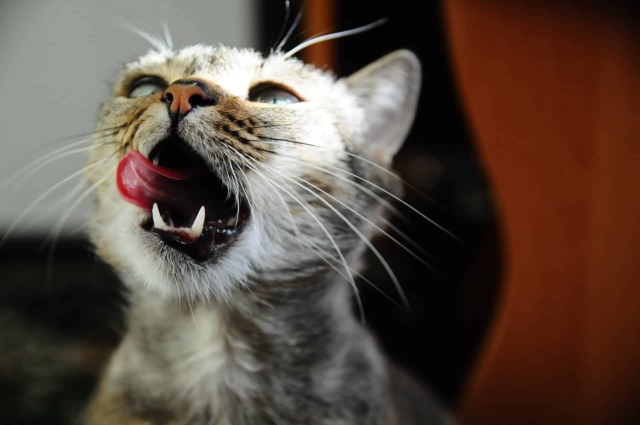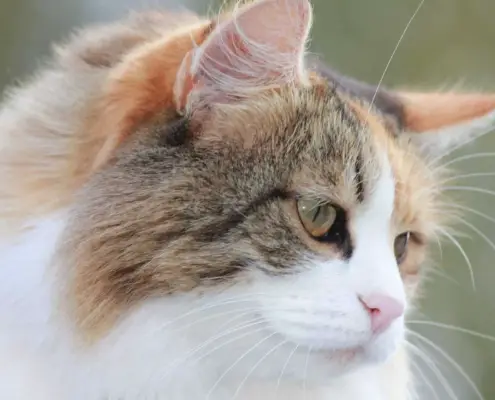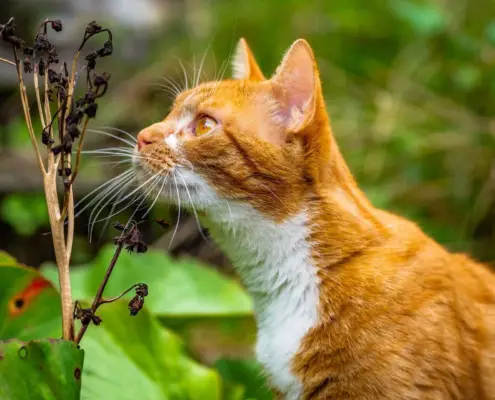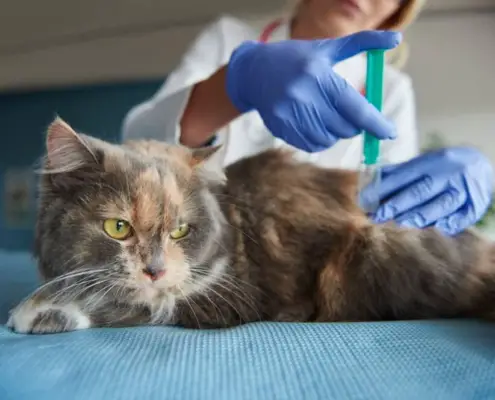
When it comes to our furry feline friends, their diet plays a crucial role in their overall health and well-being. Providing them with a balanced and nutritious diet is essential to ensure they lead a happy and healthy life. As responsible cat owners, it is important to understand the nutritional needs of cats and make informed decisions about what we feed them.
Understanding the Nutritional Needs of Cats
Cats are obligate carnivores, which means their bodies are designed to thrive on a diet that primarily consists of animal protein. Unlike humans and some other animals, cats have specific dietary requirements that cannot be met through a vegetarian or vegan diet alone. Their bodies require certain nutrients, such as taurine and arachidonic acid, which are essential for their overall health.
Can Cats Eat Carrots?
Now that we know cats are obligate carnivores, you may be wondering if it is safe for them to consume carrots. The answer is yes, in moderation. While cats derive most of their nutritional needs from animal protein, they can enjoy small amounts of certain vegetables, including carrots, as a treat. However, it is important to note that cats do not have the same digestive system as humans, and their bodies are not built to digest and utilize plant-based nutrients as efficiently.
Benefits and Risks of Cats Consuming Carrots
Carrots offer some potential benefits for cats when consumed in moderation. They are a good source of dietary fiber, which can aid in digestion and promote a healthy gut. Additionally, carrots contain essential vitamins and minerals, such as vitamin A and potassium, which can contribute to a cat’s overall well-being.
However, it is crucial to exercise caution when introducing carrots to your cat’s diet. Feeding them large amounts of carrots can lead to an upset stomach or digestive issues. Carrots are also high in natural sugars, which can be harmful to cats if consumed in excessive amounts. As with any new food, it is important to observe your cat’s reaction and consult with a veterinarian before making any significant changes to their diet.
How to Safely Introduce Carrots to Your Cat’s Diet
If you decide to introduce carrots into your cat’s diet, it is important to do so gradually and in small amounts. Start by steaming or boiling the carrots to soften them and make them easier to digest. Once cooked, you can mash or puree them and mix a small portion into your cat’s regular food. Observe your cat’s reaction and monitor their digestion for any signs of discomfort or adverse effects. If your cat enjoys the taste and shows no signs of digestive issues, you can continue incorporating carrots as an occasional treat in their diet.
Other Vegetables That Are Safe for Cats to Eat
While carrots can be a safe and nutritious treat for cats, there are also other vegetables that can be included in their diet. Some examples of cat-friendly vegetables include cooked green beans, peas, and pumpkin. These vegetables provide additional fiber and nutrients that can complement a cat’s overall diet. However, it is important to remember that these vegetables should only make up a small portion of a cat’s diet and should not replace their primary source of animal protein.
Signs of a Healthy Feline Diet
A healthy feline diet consists of high-quality animal protein, essential fats, and a balanced combination of other nutrients. When feeding your cat, it is important to look for signs that indicate they are receiving the nutrition they need. These signs include a shiny coat, clear eyes, strong muscles, and an overall energetic and playful demeanor. If you notice any changes in your cat’s appearance or behavior, it is advisable to consult with a veterinarian to ensure their diet is meeting their specific needs.
Common Misconceptions about Cats and Vegetable Consumption
There are several misconceptions surrounding cats and vegetable consumption. One of the most common misconceptions is that cats require a vegetarian or vegan diet to be healthy. As obligate carnivores, cats rely on animal protein as their primary source of nutrition. While small portions of certain vegetables can be included as treats, it is important to remember that cats need a diet that is primarily focused on animal-based proteins.
Another misconception is that all vegetables are safe for cats to consume. While some vegetables, like carrots, can be enjoyed by cats in moderation, there are others that can be toxic or harmful to their health. Onions, garlic, and certain types of mushrooms are examples of vegetables that should never be fed to cats as they can cause serious health issues.
Consulting with a Veterinarian for a Balanced Feline Diet
To ensure your cat is receiving a balanced and nutritious diet, it is always advisable to consult with a veterinarian. A veterinarian can provide guidance on the specific nutritional needs of your cat based on their age, breed, and overall health. They can also recommend high-quality cat food brands that meet the necessary nutritional requirements. Regular check-ups with a veterinarian are essential to monitor your cat’s health and make any necessary adjustments to their diet as they age.
Conclusion
While cats are obligate carnivores and derive most of their nutritional needs from animal protein, they can safely consume small amounts of certain vegetables, including carrots. Carrots can provide some additional fiber and essential vitamins for cats when incorporated into their diet in moderation. However, it is important to remember that cats have unique dietary requirements, and their bodies are not built to digest and utilize plant-based nutrients as efficiently as humans. It is always best to consult with a veterinarian to ensure your cat’s diet is balanced and meets their specific nutritional needs. By providing your cat with a well-rounded and nutritious diet, you can help them live a happy and healthy life.
If you enjoyed my article, I would appreciate you sharing it with your network.

Sima Ndlebe
Sima writes for CatBuzz. He is interested in Cats, Health and Fitness, and Entrepreneurship.
Published: 5 December 2023
Related Articles
Disclaimer
The content found on CatBuzz.org is presented on an "as is" basis and is intended for general consumer information and education purposes only. Any utilization of this information is voluntary and solely at the user's own risk.
None of the articles or content should be regarded as, or used in place of, veterinary medical advice, diagnosis, or treatment. The information provided on the website is purely for educational and informational intentions and should not be considered a substitute for professional guidance from a veterinarian or other qualified expert. The articles are designed to inform consumers about veterinary healthcare and medical matters that may impact their cat's daily life. It should be noted that this website and its services do not constitute the practice of any form of veterinary medical advice, diagnosis, or treatment. CatBuzz.org explicitly disclaims any liability for any direct or indirect damages or losses that may arise from the use of or reliance on the information contained within the content.
Consumers must consult a veterinarian, veterinary specialist, or another qualified veterinary healthcare provider when seeking advice regarding their cat's health or medical conditions. It is important not to ignore, avoid, or postpone seeking medical advice from a veterinarian or other qualified veterinary healthcare provider solely based on information obtained from this website. If you believe that your cat may be experiencing a medical issue or condition, it is imperative to promptly contact a qualified veterinary healthcare professional.



